Natural handmade tallow soap recipe: pure tallow
 |
| our 100% beef tallow soap! |
The reason that we hadn't tried 100% tallow before was the higher temperatures required to keep the tallow liquid during the mixing for cold-process soap. I was nervous about it and wanted to practice using coconut oil and olive oil mixtures first, at lower temperatures. I designed the following recipe for 100% tallow soap..
Pure beef tallow handmade natural soap
1 kg tallow
6% superfat
132 g caustic
300-330 mL water
lavender essential oil
I melted the tallow, while Pete prepared the caustic. When both mixtures were at 55 degC we added the caustic solution to the melted tallow and essential oil, and mixed using a stick blender until the mixture reached "trace". Then we poured the mixture into a mould.
When we saw the mixture starting to enter gel phase we both panicked that it was going to get too hot and volcano out of the mould.... so we put the mould in the bath, in luke warm water and positioned a pedestal fan over the soap mould..... maybe an over-reaction!
While gel-phase had been very breifly mentioned in the soap book I read originally, it didn't really explain the details, it was explained better here. Now I can see that the centre of our soap "gelled", but as we cooled the edges, it was a "partial gel phase". Would it have volcanoed if we didn't cool the soap mould? We will never know. But next time I would like to mix the soap at a lower temperature, as suggested by this blog. And we might let it go through gel-phase, just to see what happens.
When the soap finished curing we were very interested to see if it smelt like tallow. Well it doesn't and it make a lovely hard bar of soap that lasts for ages. It does have a unique tallow soap smell and essential oils can be used to mask this if you don't like it.
Our goal with soap-making has always been to create a sustainable bar of soap, and using 100% tallow is about as close as we can get. Next step is to try to make our own lye....
Have you tried to make soap from tallow or lard? What temperature do you use and have you ever ended up with a volcano!?!
You can find out more about tallow soap in my eBook Make your own natural soap
Other posts about soap:




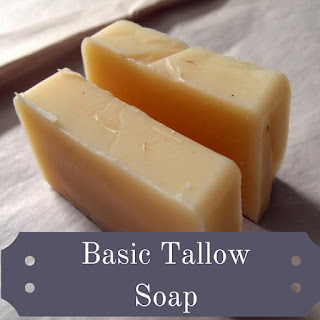












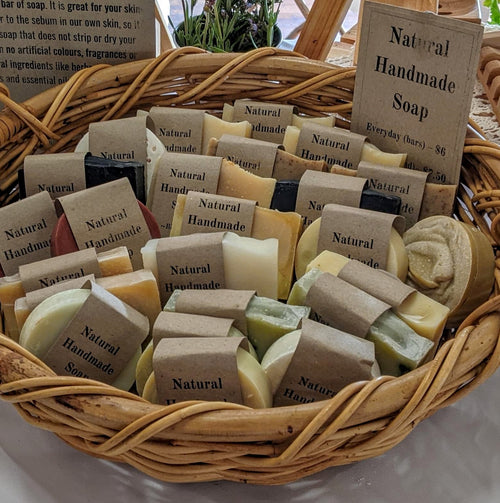
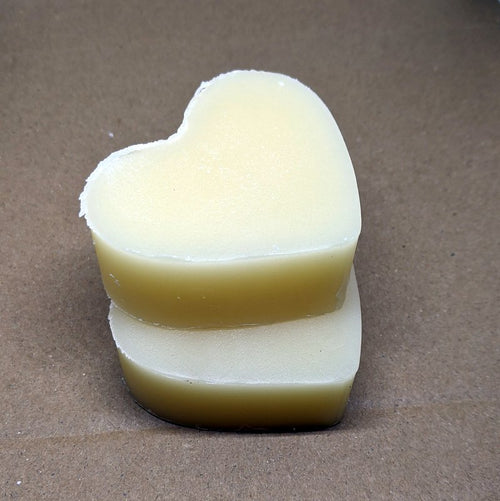
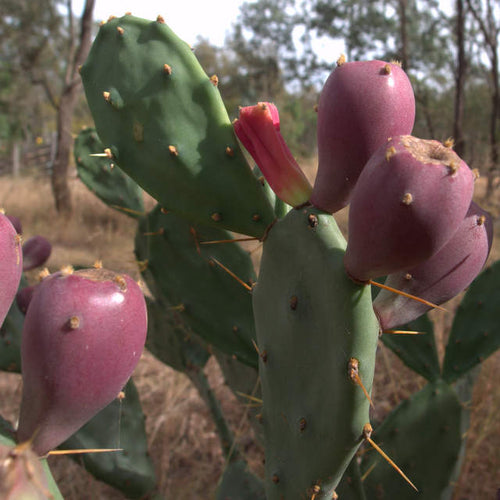
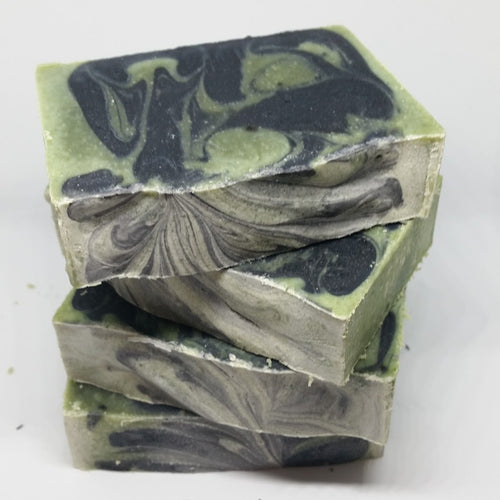
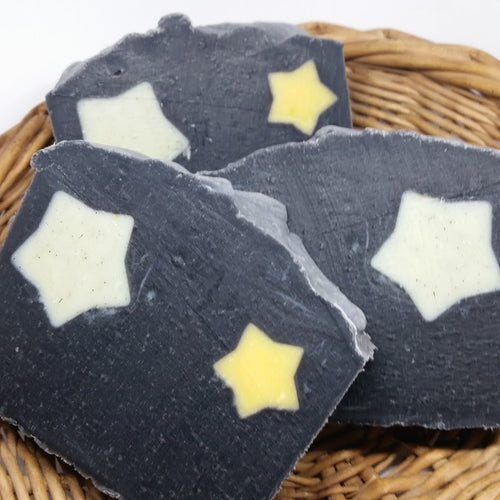



How did the soap lather? I haven’t done 100% tallow yet, but I add 20-25% coconut oil.
Hi Mila, I have noticed that tallow soap will tend to be harder and more brittle that soaps made with oils. You need to cut it within 24 hours while its still soft enough.
The orange spots are know as “dreaded orange spots” – DOS – by soapmakers. These are caused by metal impurities either in your ingredients or how you store the soap (i.e. could be your water, tallow or if you put them on a metal rack to cure). Deodorized tallow may be better if the source of impurity is your tallow, as this product has been processed more, but it won’t help if the impurities are coming from a different source.
Sorry for the delayed response, I only just saw this comment, and I thought its worth replying in case others have the same question.
Hi There,
I used your recipe for Basic 100% tallow for cold process.
Same amount of tallow and water.
The soap came back too brittle and I found some orange spots on it.
Did this happen to you ever or did it Happen because I used the cold process method.
Would it make a difference if I use Deodorized Tallow on the cold process?
Thank you kindly.
Leave a comment